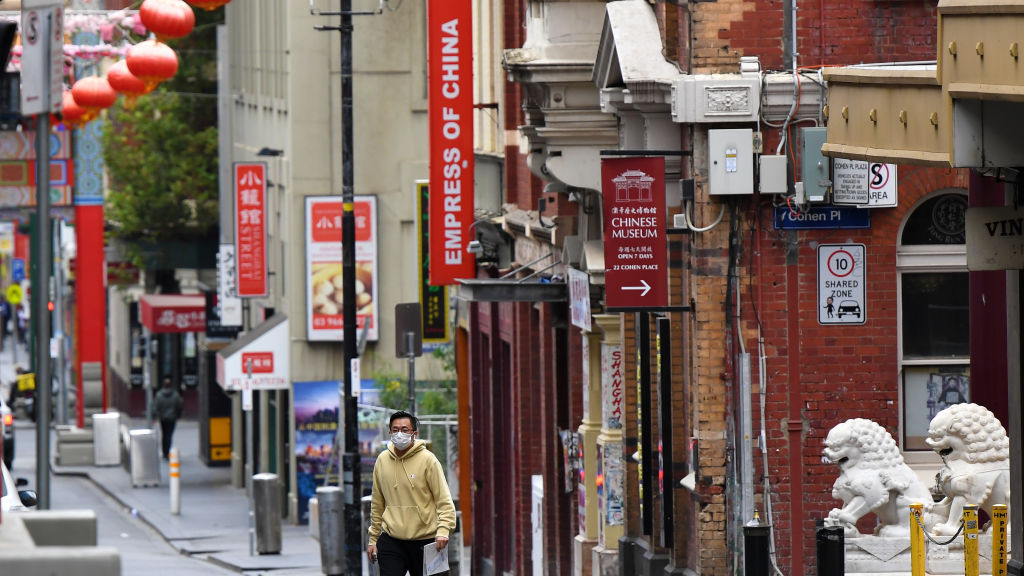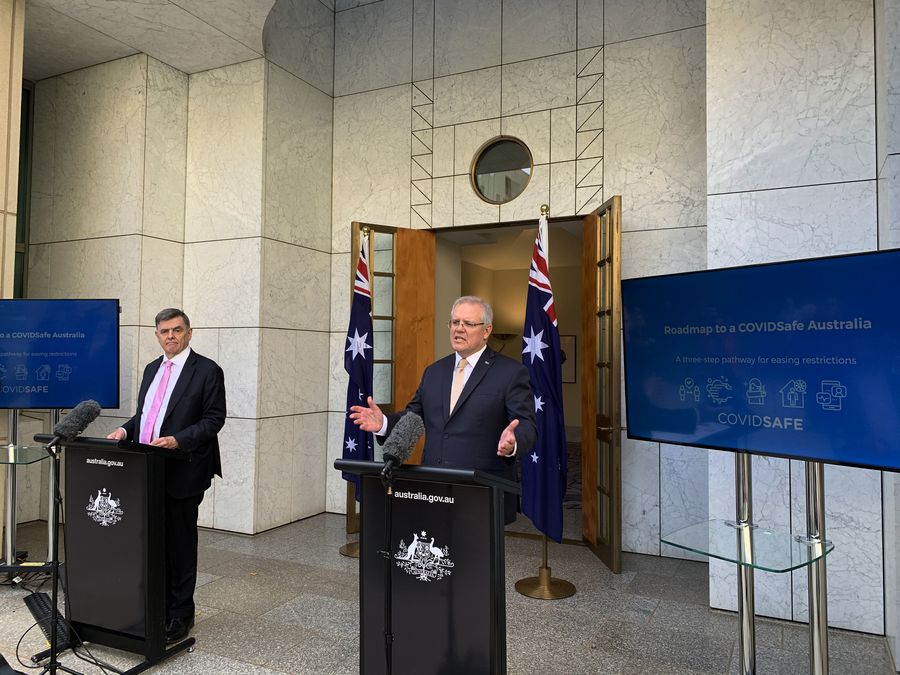
Chinatown in Melbourne, Australia, March 25, 2020. /Getty
Chinatown in Melbourne, Australia, March 25, 2020. /Getty
Editor's note: Hamzah Rifaat Hussain is a former visiting fellow at the Stimson Center in Washington and serves as assistant researcher at the Islamabad Policy Research Institute (IPRI) in Pakistan. The article reflects the author's opinions and not necessarily the views of CGTN.
Diplomatic tensions, fraught relationships, simmering differences, and trust deficits between states can significantly impact local populations. The absence of military confrontation does not necessarily translate into civilian populations being immune from attacks.
A survey by the Sydney-based Lowy Institute think tank underlines a disturbing reality where one in five Chinese Australians were either physically attacked or threatened during the pandemic. Addressing such fractures would be in the interest of both China and Australia as it would mark a key step towards improving the relationship.
Firstly, there is no reason for civilians to bear the brunt of geopolitics or simmering racism in certain segments of Australian society. Yet, there are definite reasons over why the government in Canberra is considered partly responsible for these attacks, given that they are not isolated incidents. In 2018, Australia introduced a foreign interference law which allowed for increased scrutiny of donations by Chinese Australians.
Such scrutiny was eerily similar to the threat perceptions harbored by many Australians regarding the role of Confucian institutes as promoters of soft power diplomacy. Providing legal covers allowing for racial stereotyping and attacks to take place only harms prospects for cooperation especially given that the bilateral relationship between Australia and China has been based on goodwill despite differences.
Scapegoating the civilian population over geopolitics also challenges the open and tolerant nature of Australian society, which it has long prided itself on. In the words of the President of the Chinese Australian Forum, Jason Li, seven out of ten Chinese Australians living in Australia felt a sense of belonging to the country they currently live in, whereas 68 percent of Chinese Australians said they felt a strong affinity with the Chinese identity.
With such predispositions, it is unfathomable that discrimination against Chinese Australians has taken place with such brazen regularity.
The diversity of the views and origins of the Chinese community is also a point to ponder and has been highlighted in the institute's findings. Around five percent of Australia's population of an estimated 25 million claims Chinese ancestry. Yet, half of the respondents were actually born outside the Chinese mainland in places such as Malaysia.

Australian Prime Minister Scott Morrison (R) and Chief Medical Officer Brendan Murphy attend a press conference at the Parliament House in Canberra, Australia, May 8, 2020. /Xinhua
Australian Prime Minister Scott Morrison (R) and Chief Medical Officer Brendan Murphy attend a press conference at the Parliament House in Canberra, Australia, May 8, 2020. /Xinhua
The fact that many of them find themselves on the wrong side of political tensions is a test of the multicultural makeup of Australian society, a fact acknowledged by the President of the Chinese Australian forum. Three-quarters of the respondents also claimed that Australia is an excellent place to live.
To politicize this issue further would be an anathema for cordial ties between the two countries. The deputy head of mission at the Chinese embassy in Australia, Wang Xining, had castigated despicable spoilers who criticized the Chinese government, yet a deeper understanding of Xining's message hints at his aversion to racist spoilers harming the bilateral relationship as well as China-Australian friendship which despite roadblocks, has continued to enjoy a solid foundation.
Myopic self-interests hijacking the wellbeing of the people of both countries instead of promotion of greater people-to-people contacts is an issue that requires immediate attention by the Australian government.
The political climate engineered by Canberra has allowed for such heinous acts to take place. The constant mistrust of the Chinese narrative of the origins of COVID-19 despite the WHO refuting the Wuhan lab theory allowed for such misgivings to fester.
Furthermore, similar to the previous Donald Trump administration's policies towards China in the United States, Australia imposed curbs on Huawei by blocking its participation in the 5G network. Foreign investment by China, despite Australia's membership of the Regional Comprehensive Economic Partnership, was also blocked on flimsy political grounds.
These state-level policies have had a trickle-down effect on the civilian population, given that a cover is provided for far-right groups to attack Chinese Australians, immigrants or other citizens with violence.
The Lowy disclosures clearly indicate that a different orientation by Australia must be adopted towards dealing with China which involves introspection of its own draconian policies. Scapegoating the civilian population of Chinese origin would play into the hands of those who do not wish to see the relationship blossom.
(If you want to contribute and have specific expertise, please contact us at opinions@cgtn.com.)

